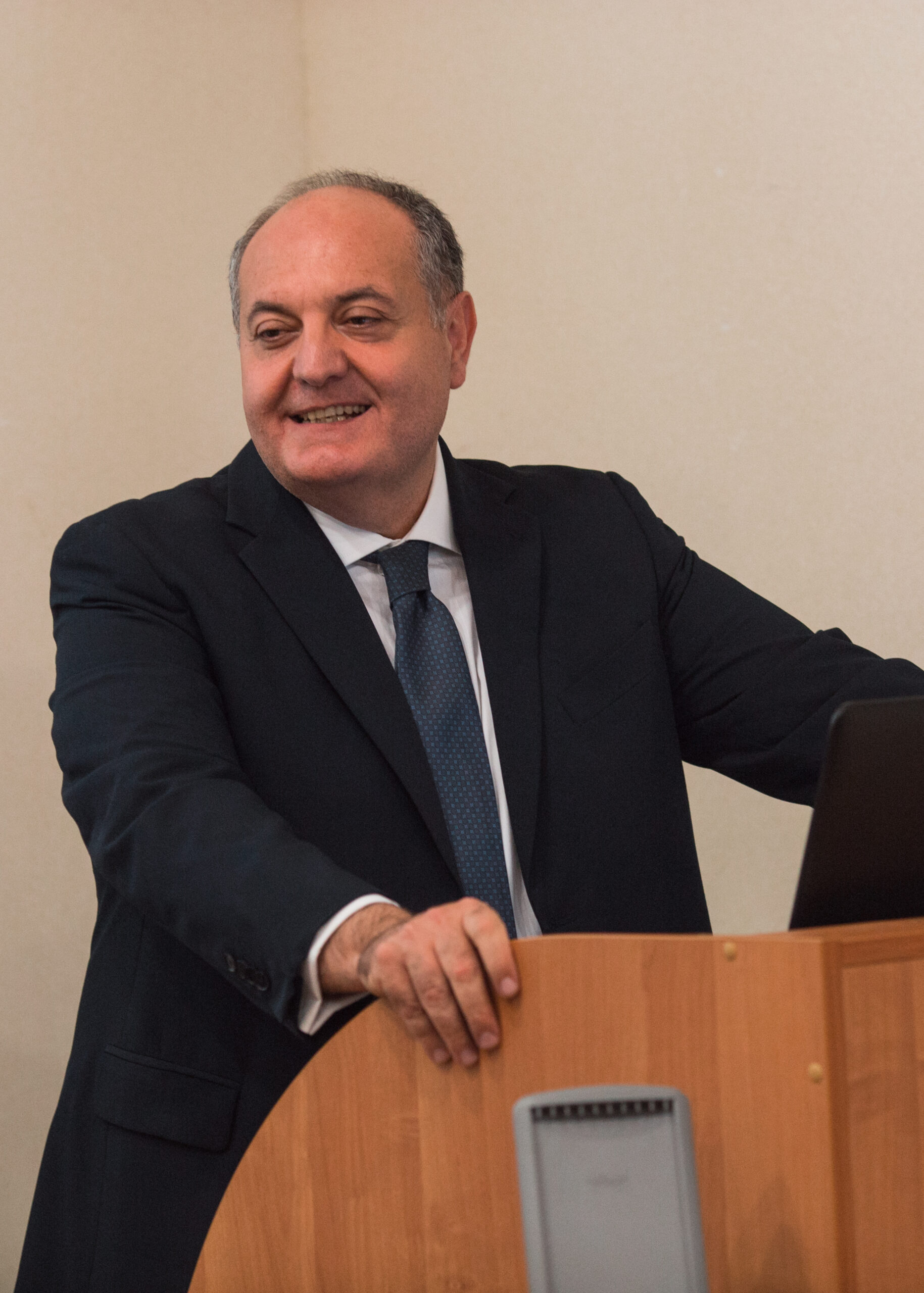Bruno S. Sergi
Faculty Affiliate of the Center for International Development at Harvard Kennedy School

- Associate at the Harvard Davis Center for Russian and Eurasian Studies and Harvard Ukrainian Research Institute
- Full Professor of Political Economy, University of Messina, Italy
Program Areas & Courses
- Case Studies in Development Economics
- Sustainability Master’s Degree Program
- Global Development Practice Master’s Degree Program
Q&A
Why do you teach at Harvard Extension School?
I started teaching at Harvard Summer School [part of the Division of Continuing Education] in 2011. Beginning the following academic year, the Extension School offered me a chance to deliver a spring class. I soon became fascinated by working professionals’ expertise. I appreciate their incredible dedication to candidly discussing global economics and sustainability challenges facing societies and their immense wisdom.
What are your areas of interest?
My research and teaching interests tie to the broader topic of the economics of emerging markets, focusing on growth, sustainable development, and entrepreneurship.
The originator of the Bruxelles Consensus, I co-direct the Lab for Entrepreneurship and Development (LEAD), based in Cambridge, to further research these areas. Also, my advisory work spans the public and private sectors. It includes such projects as the Pan-European Regional Council of the International Trade Union Confederation: economic coach of South East Europe Trade Union Economic Experts Network and NIS Trade Union Economic Experts Network.
What advice would you give to future students interested in taking your courses?
I advise participating enthusiastically. Moreover, during the first class session, I say that you must actively participate in class and are not merely a listener. This approach would reveal that you want to do great things in class and are keen to address our current and vexing societal and economic problems. This would also keep you engaged in the class material — two critical factors to getting the coveted A grade.
Suppose students want to do well in anything. Well, they must take the time to do it right and comply with the academic cornerstone of turning in quality papers with attractive propositions that go beyond descriptive analysis.
Active “learning” participation is the plus component: students who actively participated in class and drew on their working experiences writing papers were likelier to receive higher scores.
More About Bruno
Bruno S. Sergi teaches at the Harvard Extension School on the economics of emerging markets. He has been teaching at Harvard since 2011. He is an Associate of the Davis Center for Russian and Eurasian Studies and the Harvard Ukrainian Research Institute and a professor of political economy and international finance at the University of Messina, Italy.
Sergi’s research and teaching interests tie to the broader topic of the economics of emerging markets and sustainable economic development. He has published several articles in scholarly journals and many books as an author, co-author, editor, or co-editor. He is the series editor of Cambridge’s Elements in the Economics of Emerging Markets (Cambridge University Press), the editor of Entrepreneurship and Global Economic Growth (Emerald Publishing), and a co-series editor of Lab for Entrepreneurship and Development (Emerald Publishing). He co-directs the Lab for Entrepreneurship and Development (LEAD), a research lab based in Cambridge that aims to generate and share knowledge about entrepreneurship, development, and sustainability. He is also a member of the International Anti-Corruption Academy‘s academic board.
He is a frequent guest and a commentator on contemporary developments in the political economy of emerging markets in a wide range of media thanks to his academic career achievements and extensive experience in advisory roles. He is an associate editor of The American Economist and the founder and editor-in-chief of International Journal of Trade and Global Markets, International Journal of Economic Policy in Emerging Economies, and International Journal of Monetary Economics and Finance. He holds a PhD in economics from the University of Greenwich Business School, London.
Publications
- From Boardroom to Capitol: Decoding Trump’s Tariffs, Stair Journal, Feb. 2, 2025
- Global South Leadership Style, Cambridge University Press, Dec. 6, 2024
- Manipulation and Financial Market Misconduct in Indonesia, The American Economist, May 31, 2024